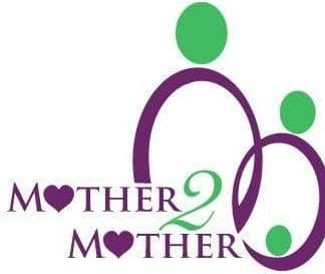In today’s swiftly progressing educational landscape, the demand for dependable, extensive, and accessible sources of information is more than ever. Research Encyclopedias have emerged as essential tools for pupils worldwide, offering a wide range of knowledge at their fingertips. This article looks into the relevance of Homework Encyclopedias, their evolution over the years, and their function in sustaining scholastic success.

As traditional education approaches adapt to electronic innovations, learning resources like Research Encyclopedias continue to work as keystones of student understanding, supplying structured and curated web content. Recognizing their worth and influence can assist pupils utilize these resources properly in their educational trip.
The Advancement of Homework Encyclopedias
The concept of encyclopedias dates back to old human beings, where understanding was diligently documented and maintained. From the scrolls of the Library of Alexandria to the published volumes of the Renaissance, encyclopedias have actually traditionally been treasured as repositories of human accomplishment and understanding.
With the advent of the electronic age, encyclopedias have actually transcended their typical print layout, becoming a lot more interactive and obtainable. Digital Research Encyclopedias now provide multimedia resources, consisting of videos, graphics, and interactive components, which enhance the discovering experience and make crowdsourced education intricate subjects much more comprehensible.
Today’s Homework Encyclopedias are not just readily available online however are likewise continually updated to guarantee the information continues to be present and appropriate. This change not just democratizes access to information however additionally transforms exactly how students engage with their research studies, promoting a deeper understanding via varied understanding modalities.
Trick Benefits of Research Encyclopedias
Homework Encyclopedias offer numerous benefits for students, teachers, and also parents sustaining their kids’s discovering undertakings.

They serve as trustworthy buddies, offering structured information that assists in academic study and research completion.
Among one of the most considerable advantages is their capability to offer validated and comprehensive content. Unlike open-source info, which can typically be undependable, encyclopedias are curated by experts, guaranteeing precision and reliability. This reliability is critical for pupils that require reliable details for their jobs and research jobs.
In Addition, Research Encyclopedias assistance independent knowing and important thinking. By motivating pupils to seek information proactively, they cultivate a feeling of inquisitiveness and initiative, which are essential abilities for lifelong discovering.
- Comprehensive Material: Encyclopedias cover a wide variety of subjects, supplying info on subjects extending various techniques.
- Interactive Learning: Multimedia aspects involve various discovering designs, making details absorbable and interesting.
- Trustworthiness: Curated by specialists, encyclopedias give reliable and accurate info.
- Constant Updates: Regular updates guarantee trainees have accessibility to one of the most current info available.
Comprehending these benefits permits trainees to optimize their discovering possible by successfully using Research Encyclopedias as part of their study regimen.
Just How to Use Homework Encyclopedias Effectively
To make one of the most out of Research Encyclopedias, pupils need to embrace calculated methods to their usage. This starts with acquainting themselves with the design and navigation of these resources. Recognizing just how to look for certain topics or exactly how to make use of index functions can considerably minimize time invested in research.
One more vital method is integrating encyclopedias into broader study techniques. While encyclopedias give foundational knowledge, they need to be utilized along with other research study approaches for an extra nuanced understanding of intricate topics. This combination of resources expands a trainee’s perspective and grows their grasp of subject.
Furthermore, trainees need to leverage the multimedia includes offered in digital encyclopedias. These can facilitate a far better understanding of challenging ideas with visualization and interactive discovering, hence boosting retention and understanding.
Leading Research Encyclopedias Available Today
The world of Research Encyclopedias is vast, with numerous alternatives readily available for pupils of various age and academic degrees. Below are some highly pertained to encyclopedias that have stood the examination of time and continue to sustain student success successfully.
- Brittanica Online: Well-known for its authoritative web content, Britannica offers extensive details on a broad range of topics, with consistent updates and multimedia aspects.
- World Book Online: Uses an easy-to-navigate interface and customized sources for various age groups, making sure content is age-appropriate and appealing.
- Encarta (Historical): Though no more in magazine, Encarta set a precedent for digital encyclopedias and remains a significant mention for its pioneering contributions.
- Khan Academy: While not a traditional encyclopedia, Khan Academy uses a considerable collection of academic web content in a style that matches conventional encyclopedic resources.
These resources provide a superb beginning factor for trainees seeking premium info. Their selection guarantees that customers can find the appropriate fit for their specific discovering demands and choices.
The Future of Research Encyclopedias
As technology continues to breakthrough, the future of Research Encyclopedias appears appealing, with innovations aimed at boosting customer experience and accessibility to info.

Expert system is most likely to play a substantial function, supplying tailored discovering courses and even more user-friendly search features, which might change just how pupils connect with these sources.
Moreover, the assimilation of online and increased reality can open brand-new opportunities for experiential learning, enabling pupils to involve with web content in immersive settings. Such growths are readied to redefine the educational landscape, making learning more interactive and impactful.
The Function of Educators and Pupils
In this developing context, instructors and students have to adapt to utilize these technological advancements efficiently. Educators can direct students in using encyclopedias as component of their curriculum, encouraging crucial reasoning and research study abilities.
For trainees, the crucial hinge on staying interested and open to discovering brand-new devices and resources. By accepting Homework Encyclopedias and similar educational innovations, they can boost their academic efficiency and plan for the challenges of tomorrow’s knowledge-driven globe.

